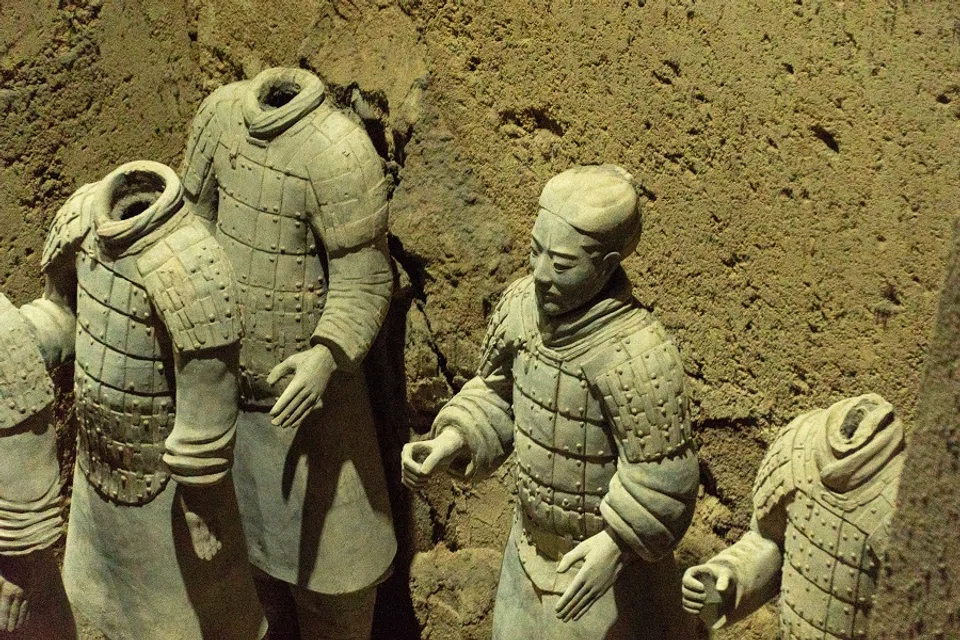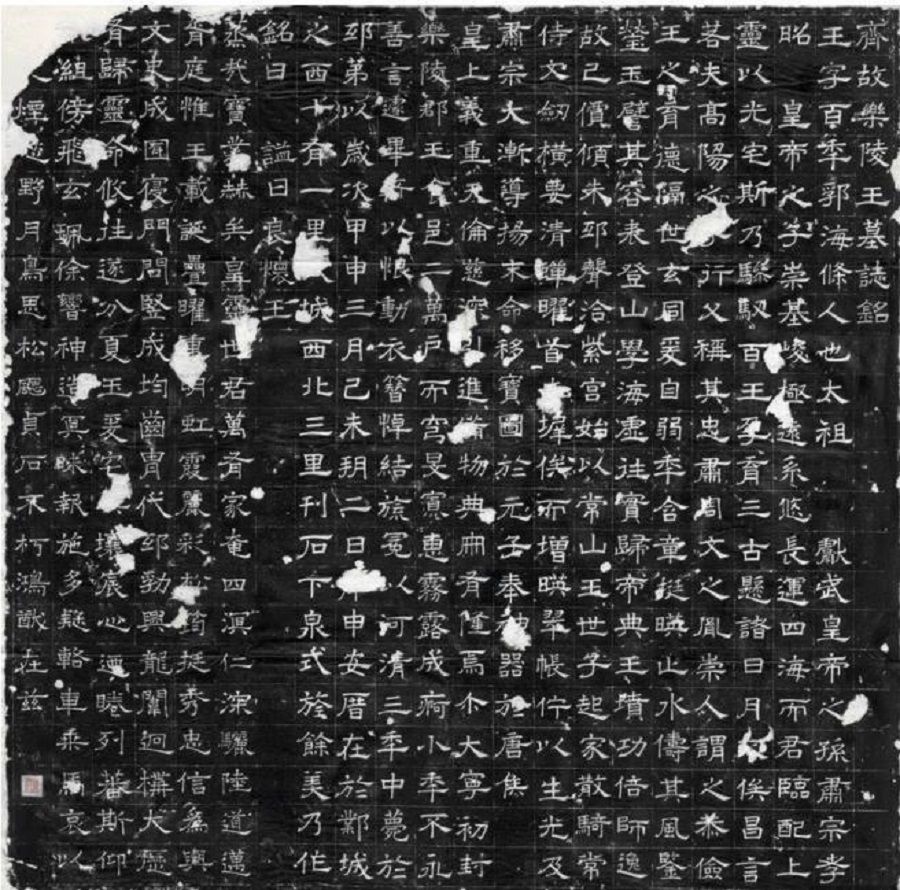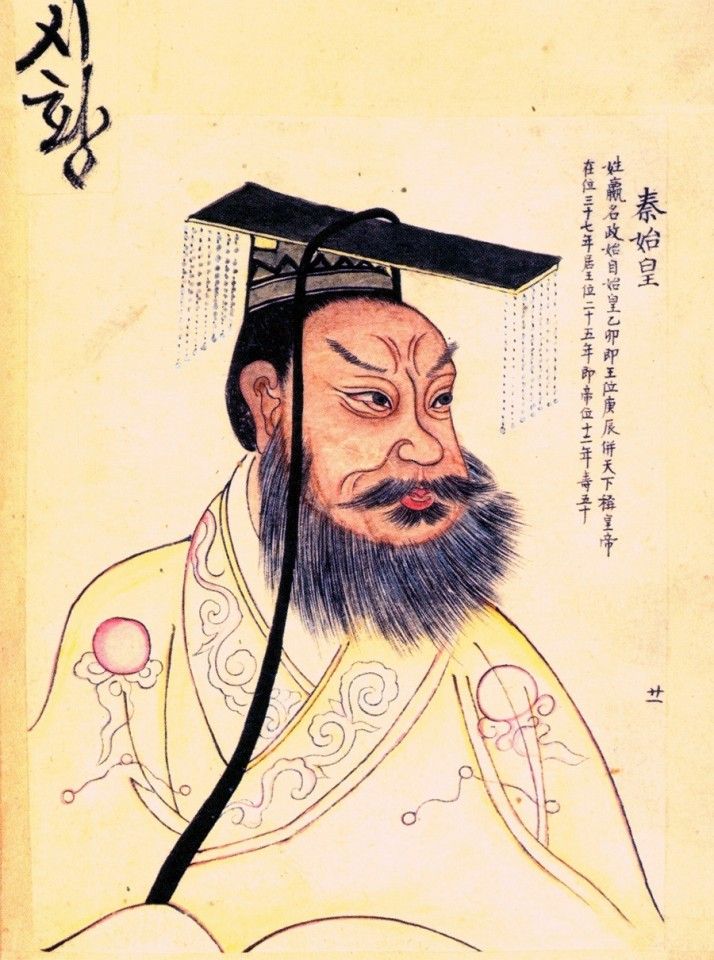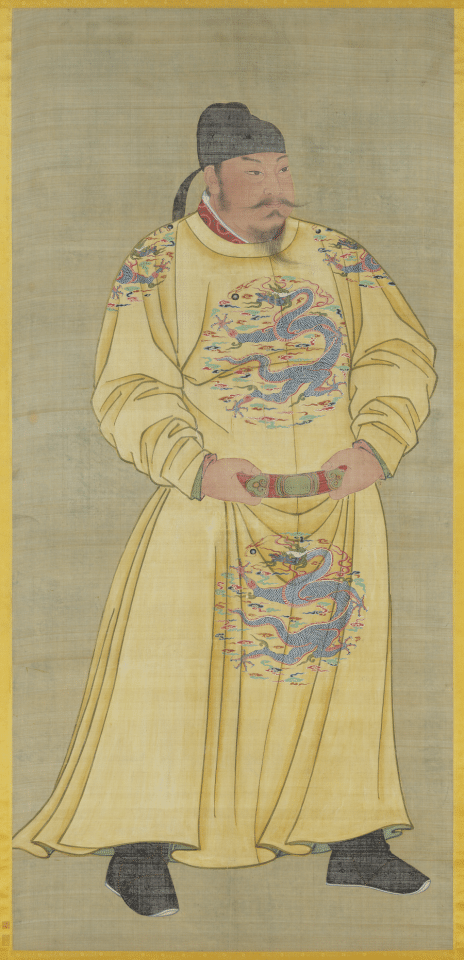Why were Chinese imperial families prone to fratricides and tragedies?

Recently, I got to hear about the tragic family affairs of a Northern Qi emperor from an expert in ancient philology, who, like me, is a residential fellow at the Zhejiang University Institute for Advanced Study in Humanities and Social Sciences. This is the famous story of Crown Prince Gao Bainian.
The emperor who ignored a dying wish
The title of crown prince was bestowed on Gao Bainian by Emperor Xiaozhao of Northern Qi, who was the third emperor of Northern Qi during the Northern and Southern dynasties period. Emperor Xiaozhao's personal name was Gao Yan and his temple name was Suzong.
Gao Yan's elder brother Gao Yang was the first emperor of Northern Qi. Gao Yang had designated his son Gao Yin as his successor before he died. However, at that time, Gao Yang was only 31 years old and Gao Yin was still very young. Gao Yang was worried that his two younger brothers Gao Yan and Gao Zhan would harm his son. It was recorded in history that Gao Yang was deeply concerned about his powerful brothers - Prince of Changshan (Gao Yan) and the Prince of Changguang (Gao Zhan, a younger brother of the same mother) - and what the future would hold. But Gao Yang was a great hero and did not harm his younger brothers. On his deathbed, Gao Yang simply told Gao Yan, "Usurp the throne if you must, but do not kill." Put plainly, Gao Yang was saying, "Take my son's throne if you want it. Just spare his life."
Regrettably, Gao Yin, known in history as Emperor Fei (废帝, "the deposed emperor") of Northern Qi, did not reign for a long time, as you would have guessed from his title. A short year after Gao Yang passed away, Gao Yan completely forgot the last words of Gao Yang, resolutely joining forces with his younger brother Gao Zhan to launch a coup. Gao Yan made himself the emperor and relegated his nephew Gao Yin to being the prince of Jinan. But in the second year, Gao Yan found an excuse to kill his nephew.

Tragically, Gao Yan was emperor for only two years before he fell from a horse and broke his ribs. Coupled with the fact that he was already under immense psychological stress from killing his nephew, the double blow pushed him to the end of his rope. Now, Gao Yan found himself in the same situation as his elder brother Gao Yang: should he pass the throne to his son Gao Bainian, who was already the crown prince, or should he pass it to his brother Gao Zhan, who had long been eyeing the throne?
At that time, his son Gao Bainian was only about six or seven years old. If he passed the throne to his son, history might repeat itself. After much thought, Gao Yan decided to give the throne to his brother Gao Zhan. Gao Yan announced his decision and wrote these words to Gao Zhan on his deathbed: "Bainian is innocent. Do what you will with him but please do not follow the example of your predecessors." It was almost as if Gao Yan was imploring his brother: "I give you the throne. My son Bainian is innocent. Please spare his life and do not err like your predecessors." Laughably, the "predecessors" he referred to included himself. Under the circumstances, it can be inferred that Gao Yan had weighed the relative strengths of Gao Zhan and Bainian, and decided it was best to cede power to Gao Zhan.
Logically speaking, by inheriting the throne in this manner, Gao Zhan was neither in danger nor was his position threatened. Both of his powerful elder brothers were dead and Crown Prince Gao Bainian was made just the prince of Leling. Besides, Gao Bainian was very young and incapable of rocking the boat to any extent. It would not make sense for Gao Zhan to kill his nephew at this juncture.
Bainian was beheaded and thrown into the pool; his blood stained the pool red. The emperor watched as the body of Bainian was buried in the garden afterwards.
Emperor Wucheng's heart of stone
However, less than two years later, Gao Zhan (known as Emperor Wucheng) felt uneasy as the astrological signs were not in his favour. Right then, Gao Bainian's teacher Jia Dezhou tattled on Gao Bainian, saying that the latter loved to write the word chi (敕, "imperial edict"), which was a word that only the emperor could write. This immediately incurred the wrath of Gao Zhan, who summoned Gao Bainian for a meeting at Liangfeng Hall.

As written in historical records, "The emperor [that is, Gao Zhan] ordered Bainian to write the word chi. Seeing that his handwriting matched the ones in the copies Dezhou had submitted to him, he ordered his guards to beat Bainian and drag him around the hall. Accordingly, he was beaten as he was dragged, and his blood splattered everywhere. When Bainian was almost beaten to death, he pleaded, 'Spare me, I am willing to work as your slave.' But to no avail. Bainian was beheaded and thrown into the pool; his blood stained the pool red. The emperor watched as the body of Bainian was buried in the garden afterwards."
To be honest, the details recorded in this paragraph are too gory. Gao Bainian's uncle truly had a heart of stone!
Huhai first falsified an edict that forced Qin Shi Huang's eldest son Fusu to commit suicide, then executed all of his remaining 31 siblings!
Qin Er Shi's ruthlessness
Such moral tragedies of fratricide in ancient China seem to be more common in the imperial family. The earliest case also happened in the house of the first emperor. That's right, the house of Qin Shi Huang who unified a war-torn ancient China.
According to historical records, Qin Shi Huang had 33 children. After he died, his youngest son Huhai became the emperor (known as Qin Er Shi) with the help of top aides Zhao Gao and Li Si. As Huhai was not the rightful heir to the throne which is usually passed down to the eldest son of the emperor, Huhai first falsified an edict that forced Qin Shi Huang's eldest son Fusu to commit suicide, then executed all of his remaining 31 siblings!
He first killed his ten sisters at a place called "Du (杜)". As written in Records of the Grand Historian: The Biography of Li Si (《史记·李斯列传》), "Ten princesses were killed by zhe (磔) in Du." Zhe refers to the torture method of dismemberment used in ancient times. Huhai's brother Gao was frightened by the news and did not know what to do. He wrote a statement to Huhai and requested to be buried alive with Qin Shi Huang. Huhai immediately granted his request and rewarded him with 100,000 qian to be buried alive with Qin Shi Huang.

But this was just the beginning; the rest of his siblings died much more horrible deaths than Gao. Not only did Huhai execute his siblings with the "chariot-tearing" method (tying the head and each hand and leg of the victim to five separate horses and allowing the horses to gallop away) in Xianyang, he also exterminated the families of his siblings' mothers and wives. I once thought that Huhai had completely lost his mind and become mentally perverted after he became the emperor. Of course, his ending was not great either, as he was ultimately killed by Zhao Gao.
Such tragic fratricides of the imperial family were indeed very common and repeatedly recorded in historical books to the point where Liu Ziluan, the ten-year-old prince of Xin'an and eighth son of Northern and Southern dynasties period Emperor Xiaowu of Song, exclaimed just before he was killed by Emperor Qianfei (Liu Ziye, the "former deposed emperor"), "I hope I will never be reincarnated into the royal family in my afterlife!"
Over two decades later, during the Liu Song dynasty of the Southern dynasties period, Emperor Shun of Song (personal name Liu Zhun), who was the last emperor of the Liu Song dynasty, even said before he was killed, "May I never be born into the royal family again for all of eternity!"
It is not true that future generations of emperors would learn the lessons of history. In fact, they seem to have never learnt any lessons. Even Emperor Taizong of Tang (personal name Li Shimin) who liked to "draw lessons from history" became most ruthless during the Xuanwu Gate Incident, having fired a fatal shot at his elder brother, Crown Prince Li Jiancheng, with an arrow.

So then, the next question is: "Why do fratricides happen more easily in the royal family? Were they unable to think of a good way to prevent such tragedies from happening again?"
Link to contract theory in economics
Unfortunately, the answer is "no". This is due to the unbridled nature of imperial power during the Chinese imperial era.
There is an interesting branch of economics called "contract theory". It mainly studies how better contracts can be crafted to obtain the best results for the contracting parties, especially the entrusting party. This is the case for Gao Yan and Gao Zhan. Gao Yan was actually signing a contract with Gao Zhan by offering the throne to the latter as a condition of reciprocity that Gao Zhan would in exchange, spare his son Gao Bainian's life. As the entrusting party, Gao Yan would certainly hope that the entrusted party would act according to his own wishes, so as to achieve a win-win situation for both parties.
While Gao Yan was still alive, Gao Zhan was certainly willing to accept the arrangements stated in the contract. However, the unfortunate thing is that this contract would most definitely display "dynamic inconsistency". That is to say, once Gao Yan passed on and Gao Zhan ascended to the throne, abiding by this contract would no longer be the best choice. No matter how young his nephew was or how miniscule of a threat he presented, he was still a potential risk factor. It would be disastrous if treacherous people were to make use of Gao Bainian's former title of "crown prince" to oppose Gao Zhan - killing Gao Bainian would thus put an end to these risks once and for all.
The tragedy in Crown Prince Gao Bainian's case lies in the fact that there was no third party to implement the throne inheritance contract in the royal family. All contracts must be implemented with the help of a third party. And the reason why we can call the various rights that we possess our "rights" is due to the fact that generally speaking, there is the third party of "society" that protects us from being hurt by others.
If people see that your car is about to be stolen - that your rights are about to be violated - they would normally call the police or alert passersby to prevent such attempts in advance. The property rights to your car are not only determined by your ability to exercise those rights; it also depends on the extent to which other people are willing and able to protect your control over your resource.
In a pride of lions, a male lion has first dibs on hunted prey by virtue of its sharp claws and teeth alone. But this is not a "right" as it is in human society. Because lions are unable to uphold the rights of other lions, they actually have no rights to speak of. On the contrary, what they do have, is simply submission to the power and might of the lion king.

Indeed, the emperor's siblings and his children are like the other lions in the pride, in the case where the emperor is the only male lion. Once he becomes "emperor", he has first dibs on hunted prey. Other lions have no rights to speak of - they can only wait for their brother or uncle who is the emperor to begin his bloody massacre.
... the crux of the issue lies in the fact that as long as power is unchecked, tragedies are always inevitable.
So then, couldn't the royal family have found a third party to supervise the implementation of the throne inheritance contract? It was not that they did not think about doing so, but just that such attempts were useless.
The first method: imposing regency. But this was a risky system: if the regents were extremely capable, for example, someone like Sima Yi (a general from the Three Kingdoms period) who dominated the political scene and controlled the emperor, the outcome could have been just as bad. If the regents were incapable, the situation would be the same as well, such as in the case of regent Sushun during the reign of Qing dynasty's Xianfeng Emperor, who was jointly killed by Prince Gong (Yixin) and Empress Dowager Cixi. As can be seen, regency was not a stable third-party enforcement mechanism.
The second method: creating "feudal kings" of the same surname, and allowing these kings to ensure the implementation of the contract. For example, Emperor Gaozu of Han, Liu Bang, made those surnamed "Liu" feudal kings; while the founding emperor of Ming dynasty Zhu Yuanzhang made his own children "feudal princes". But this had no effect as well: The Rebellion of the Seven States occurred during the Han dynasty, which almost cost Emperor Jing of Han his throne; and the Jingnan campaign occurred in the Ming dynasty, during which Yongle Emperor (personal name Zhu Di) stole the throne from his nephew Jianwen Emperor, which was another bloody affair.
When we read history books, even as we shed tears of sympathy for people like Gao Bainian who experienced great tragedies, we should also ponder the reasons why royal families in ancient China were unable to break the cycle of fratricide and coup.
Perhaps, the crux of the issue lies in the fact that as long as power is unchecked, tragedies are always inevitable.
This article was first published in Chinese by Caixin Global as "神奇的生活经济学:为什么皇帝家更容易骨肉相残". Caixin Global is one of the most respected sources for macroeconomic, financial and business news and information about China.

